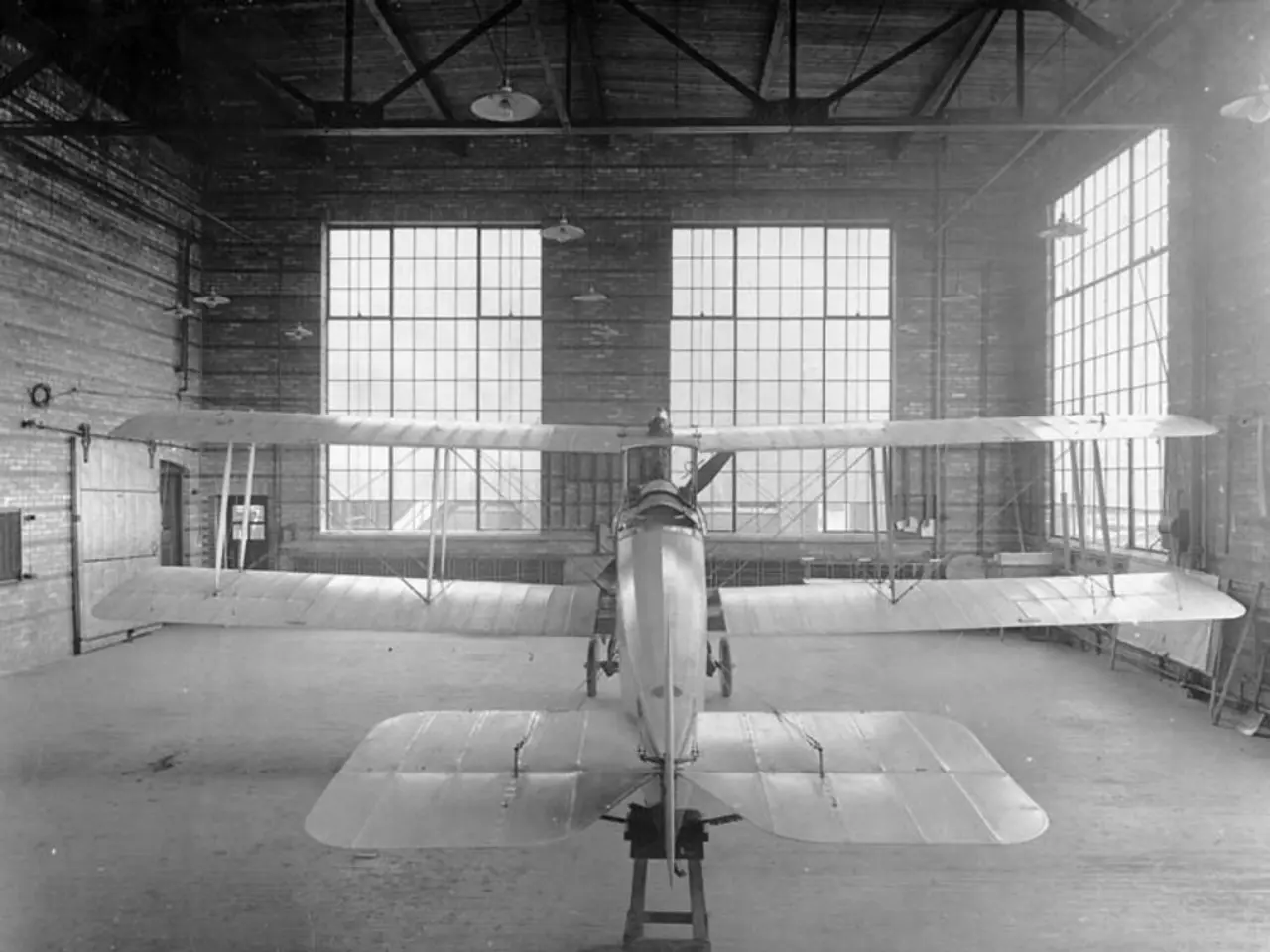Valuable Enough for the Burden
The UK aerospace sector is making significant strides in the development and adoption of composite materials, with leading industry and research partners joining forces to shape a coordinated strategy for the future.
A consortium, formed for a project on digitally enabled, additively manufactured composite technologies, is currently in negotiations with the Aerospace Technology Institute (ATI) to contribute to this strategy. The goal is to boost composite-based production in the UK, aiming to grow the country's market share in aerospace composites by more than six times to 2050.
The shift from metallics to composites has been accelerating as the aerospace sector chases manufacturing and operational efficiencies. Composite materials, which currently make over 50% of the weight of modern aircraft like the Airbus A350 and Boeing B787, are critical enablers for a new generation of ultra-efficient aircraft. On current market predictions, the value of composite components on future ultra-efficient platforms will total more than £65bn to 2050, just considering the wings.
One of the key players in this shift is Brookhouse Aerospace, which is making further investments in machining capabilities and has invested over £500,000 in additional machinery to extend its engineering capabilities.
The National Composites Centre (NCC), another major player, has adopted Dassault Systèmes' 3DEXPERIENCE platform, a move that has been extended to other innovation centres within the UK High Value Manufacturing Catapult network. The NCC has also moved the platform to the cloud, enabling a more efficient and collaborative approach to composite material research and technology.
The UK Government has also shown its commitment to this sector, investing £480m of grant funding through the ATI Programme in composite material research and technology. The ATI is calling on the sector to align around a clear strategy that directs funding and activity to create a coherent and competitive national capability in composites.
Meanwhile, Syensqo has achieved qualification for a resin system in combination with Teijin Carbon's reinforcements, a significant milestone in the development of composite materials. This achievement could pave the way for more efficient and cost-effective composite production.
Britten-Norman, manufacturer of the Islander aircraft, has also made strides in this area. The company has reached a major milestone in its programme to bring full aircraft production to its Bembridge facility on the Isle of Wight.
Lastly, Lockheed Martin will upgrade the Republic of Korea Air Force's F-16 Block 52 flight simulators to mirror the advanced capabilities of its modernised F-16 Viper (F-16V) aircraft, further demonstrating the importance of composite materials in modern aerospace technology.
In conclusion, the UK aerospace industry is embracing composite technology to drive future efficiency in aircraft design and production. Through a targeted approach to improving competitiveness, the UK can maintain and grow its workshare in composite materials research and technology.
Read also:
- MRI Scans in Epilepsy Diagnosis: Function and Revealed Findings
- Hematology specialist and anemia treatment: The role of a hematologist in managing anemia conditions
- A Week in Pixelized Realm: The Transformation of the World in Digital Form
- Enhancing the framework or setup for efficient operation and growth




